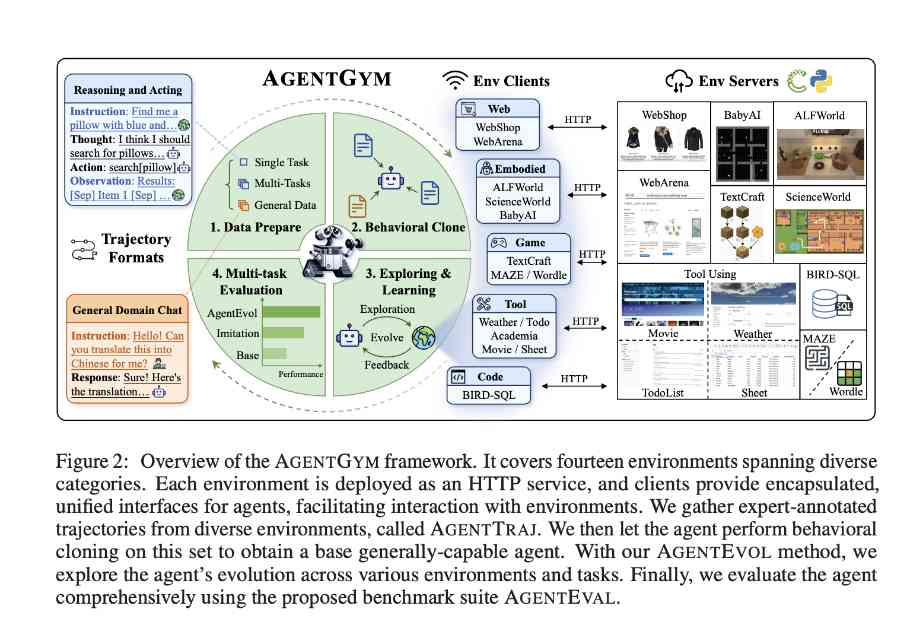Artificial intelligence (AI) research has been focused on developing agents that can perform tasks in various environments. These agents are designed to learn and adapt like humans, evolving through interaction and feedback. The goal is to create AI systems that can handle diverse challenges on their own, making them useful in real-world applications.
One challenge in AI is creating agents that can learn across different tasks and environments without constant human supervision. Current methods often require detailed guidance, limiting scalability and adaptability. The key is to develop autonomous systems that can learn and improve independently, enhancing their ability to handle diverse tasks without constant oversight.
Existing research includes frameworks like AgentBench, AgentBoard, and AgentOhana, which evaluate and develop large language model-based agents. These frameworks usually involve behavioral cloning or isolated training, limiting scalability and generalization. Models like GPT-3.5-Turbo, GPT-4-Turbo, and Llama-2-Chat have been explored for these purposes. Other approaches like ReAct and self-improvement train agents through environmental feedback and interactive learning.
Researchers from Fudan NLP Lab & Fudan Vision and Learning Lab introduced the AGENTGYM framework. This innovative framework supports diverse environments and tasks, allowing agents to explore in real time. AGENTGYM provides tools and environments for training and evaluating large language model-based agents, enhancing their adaptability and performance. The framework includes a platform with various environments and tasks, a database of instructions, and a method called AGENTEVOL for agents to evolve through interaction and learning from new experiences.
Experimental results show that agents evolved using AGENTEVOL perform well across tasks, outperforming baseline models in tasks like WebShop and ALFWorld. The framework’s ability to integrate diverse instructions and tasks has resulted in agents that are versatile and capable of handling a wide range of challenges. This highlights the potential of AGENTGYM in advancing the development of generalist AI agents for real-world applications.
In conclusion, the AGENTGYM framework represents a significant advancement in creating capable AI agents. The research team from Fudan NLP Lab & Fudan Vision and Learning Lab has made substantial contributions to the field, particularly with their work on AGENTGYM and AGENTEVOL. By enabling autonomous evolution in diverse environments, the framework shows promise in developing versatile and adaptable AI agents. This innovative approach sets the stage for future advancements in AI research, creating more capable and generalist agents for various applications.













